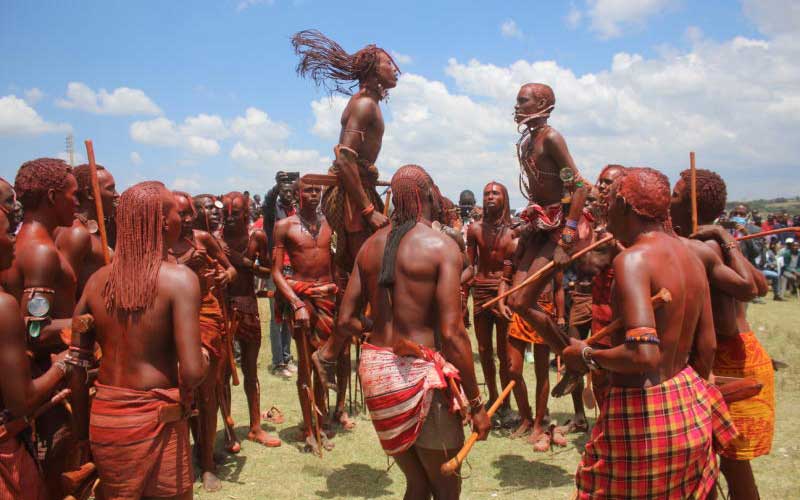×
The Standard e-Paper
Smart Minds Choose Us

Maasai morans at Olchoro Olbor village on the slopes of Maparasha Hills in Kajiado County on Monday. [Robert Kiplagat, Standard]
A rhythmic guttural chant from a group of Maasai warriors can be heard as one approaches Olchoro Oibor, a remote village on the slopes of Maparasha Hills in Kajiado County.